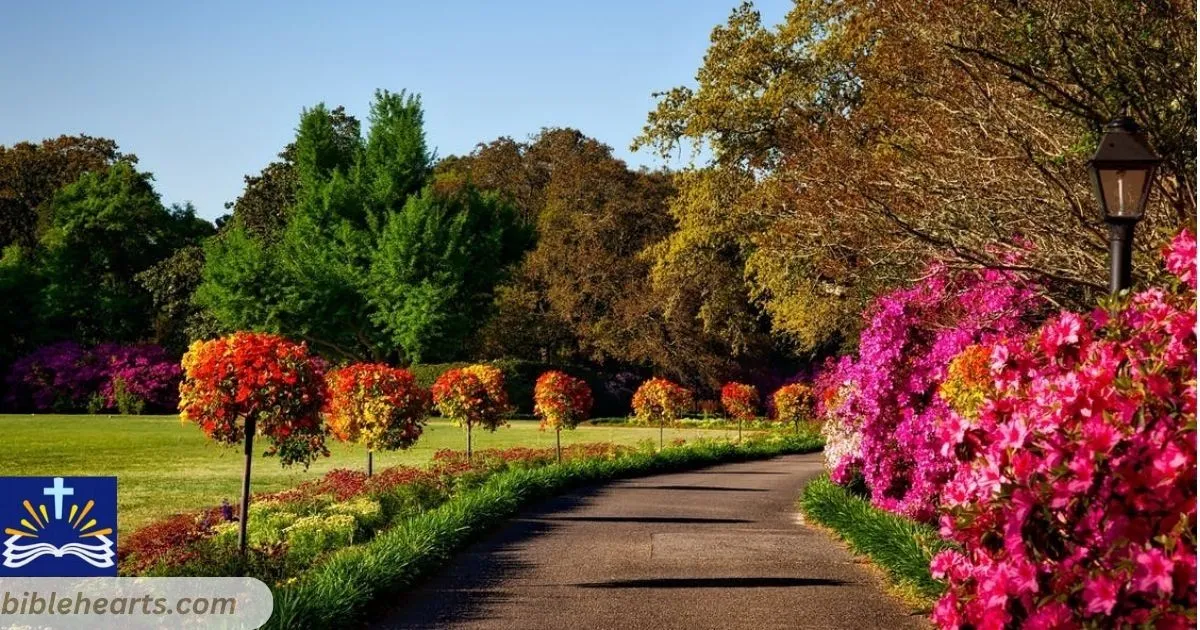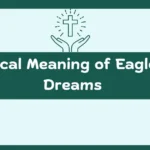“Biblical gardens offer rich symbolism and spiritual lessons about growth, care, and divine beauty.”
Gardens hold a special place in the Bible, serving as powerful symbols of beauty, growth, and divine care. From the lush paradise of Eden to the symbolic imagery of vineyards and olive groves, gardens in Scripture are more than just physical spaces—they represent spiritual truths and lessons. Exploring the Bible’s references to gardens helps us understand their deeper significance and how they can inspire our own spiritual journeys.
In this post, we will delve into various Bible verses about gardens, uncover their symbolism, and reflect on the lessons they offer. Whether it’s the Garden of Eden or the vineyards mentioned in parables, these gardens provide profound insights into God’s creation and our relationship with Him.
1. The Garden of Eden: A Symbol of Paradise and Innocence
Verses:
- Genesis 2:8 – “Now the Lord God had planted a garden in the east, in Eden; and there he put the man he had formed.”
- Genesis 2:9 – “The Lord God made all kinds of trees grow out of the ground—trees that were pleasing to the eye and good for food. In the middle of the garden were the tree of life and the tree of the knowledge of good and evil.”
- Genesis 2:15 – “The Lord God took the man and put him in the Garden of Eden to work it and take care of it.”
- Genesis 3:6 – “When the woman saw that the fruit of the tree was good for food and pleasing to the eye, and also desirable for gaining wisdom, she took some and ate it. She also gave some to her husband, who was with her, and he ate it.”
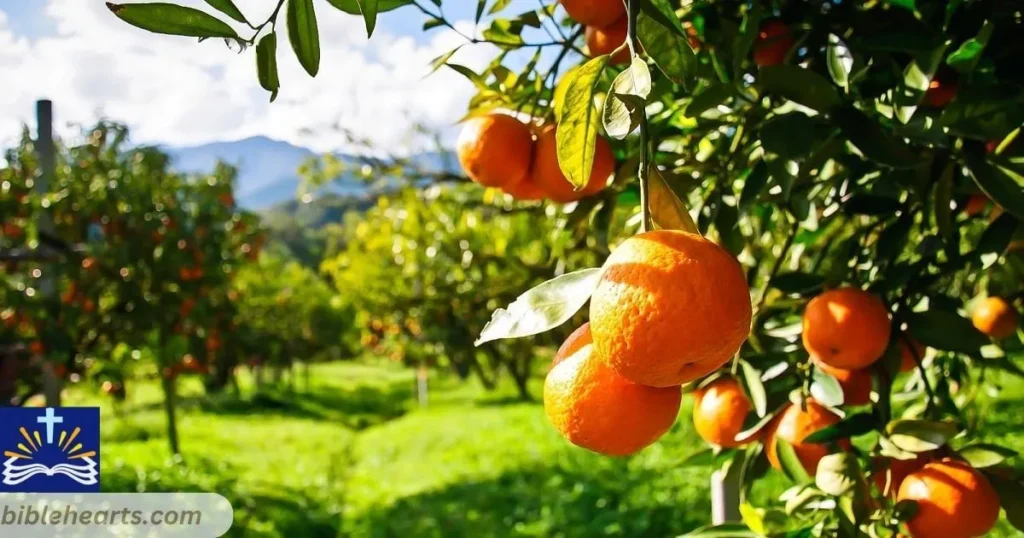
- Genesis 3:23 – “So the Lord God banished him from the Garden of Eden to work the ground from which he had been taken.”
- Revelation 2:7 – “‘Whoever has ears, let them hear what the Spirit says to the churches. To the one who is victorious, I will give the right to eat from the tree of life, which is in the paradise of God.’”
Real-Life Example:
A community garden project that began with the intention of beautifying a neglected area inspired participants to reflect on the Edenic paradise. Through their work, they found renewed appreciation for creation and a sense of divine purpose.
2. The Vineyard: Growth and Fruitfulness
Verses:
- John 15:1 – “‘I am the true vine, and my Father is the gardener.’”
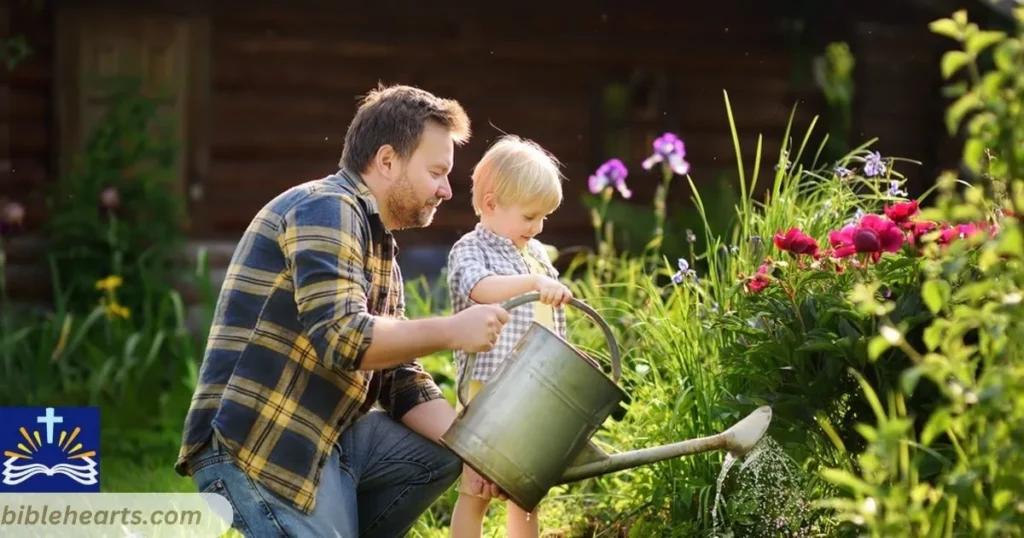
- Isaiah 5:1-2 – “I will sing for the one I love a song about his vineyard: My loved one had a vineyard on a fertile hillside. He dug it up and cleared it of stones and planted it with the choicest vines. He built a watchtower in it and cut out a winepress as well. Then he looked for a crop of good grapes, but it yielded only bad fruit.”
- Matthew 21:33 – “‘Listen to another parable: There was a landowner who planted a vineyard. He put a wall around it, dug a winepress in it and built a watchtower. Then he rented the vineyard to some farmers and went away on a journey.’”
- Psalm 80:8-9 – “You transplanted a vine from Egypt; you drove out the nations and planted it. You cleared the ground for it, and it took root and filled the land.”
- Proverbs 31:16 – “She considers a field and buys it; out of her earnings she plants a vineyard.”
- Luke 13:6-9 – “Then he told this parable: ‘A man had a fig tree growing in his vineyard, and he went to look for fruit on it but did not find any. So he said to the man who took care of the vineyard, “For three years now I’ve been coming to look for fruit on this fig tree and haven’t found any. Cut it down! Why should it use up the soil?” “Sir,” the man replied, “leave it alone for one more year, and I’ll dig around it and fertilize it. If it bears fruit next year, fine! If not, then cut it down.”’”
Real-Life Example:
A local vineyard that struggled with poor yields transformed after implementing new farming techniques inspired by John 15:1. Their success highlighted the importance of diligent care and spiritual growth.
Bible Verses About Prayer and Faith
3. The Olive Tree: Peace and Divine Provision
Verses:
- Psalm 52:8 – “But I am like an olive tree flourishing in the house of God; I trust in God’s unfailing love forever and ever.”
- Jeremiah 11:16 – “The Lord called you a thriving olive tree with beautiful fruit and full of flavor. But with the roar of a mighty storm he will set it on fire, and its branches will be broken.”
- Romans 11:17 – “If some of the branches have been broken off, and you, though a wild olive shoot, have been grafted in among the others and now share in the nourishing sap from the olive root…”
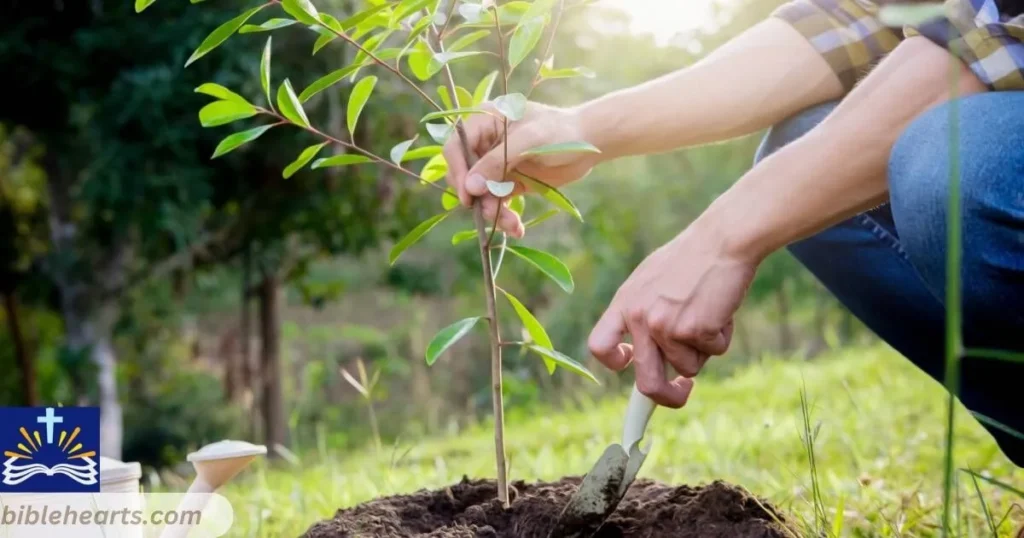
- Zechariah 4:11-14 – “Then I asked the angel, ‘What are these two olive trees on the right and the left of the lampstand?’ Again I asked him, ‘What are these two olive branches beside the two gold pipes that pour out golden oil?’ He replied, ‘Do you not know what these are?’ ‘No, my lord,’ I said. So he said, ‘These are the two who are anointed to serve the Lord of all the earth.’”
- Luke 4:19 – “To proclaim the year of the Lord’s favor.”
- Genesis 8:11 – “When the dove returned to him in the evening, there in its beak was a freshly plucked olive leaf! Then Noah knew that the water had receded from the earth.”
Real-Life Example:
An olive grove that suffered from disease saw recovery and abundant fruitfulness after adopting new cultivation methods, reflecting the lessons of Psalm 52:8 about flourishing through divine care.
4. The Fig Tree: Bearing Fruit and Spiritual Growth
Verses:
- Mark 11:13 – “Seeing in the distance a fig tree in leaf, he went to find out if it had any fruit. When he reached it, he found nothing but leaves, because it was not the season for figs.”
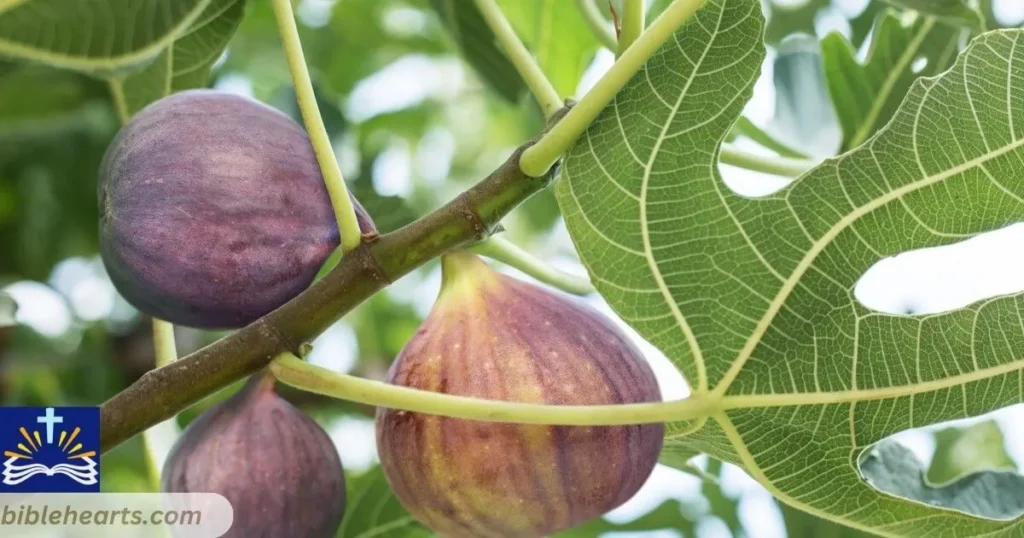
- Luke 13:6-9 – “Then he told this parable: ‘A man had a fig tree growing in his vineyard, and he went to look for fruit on it but did not find any. So he said to the man who took care of the vineyard, “For three years now I’ve been coming to look for fruit on this fig tree and haven’t found any. Cut it down! Why should it use up the soil?” “Sir,” the man replied, “leave it alone for one more year, and I’ll dig around it and fertilize it. If it bears fruit next year, fine! If not, then cut it down.”’”
- Hosea 9:10 – “When I found Israel, it was like finding grapes in the desert; when I saw your ancestors, it was like seeing the early fruit on the fig tree. But when they came to Baal Peor, they consecrated themselves to that shameful idol and became as vile as the thing they loved.”
- Jeremiah 24:5 – “This is what the Lord, the God of Israel, says: ‘Like these good figs, I regard as good the exiles from Judah, whom I have sent out of this place to the land of the Babylonians.’”
- Matthew 21:19 – “Seeing a fig tree by the road, he went up to it but found nothing on it except leaves. Then he said to it, ‘May you never bear fruit again!’ Immediately the tree withered.”
- James 3:12 – “Can a fig tree bear olives, or a grapevine bear figs? Neither can a salt spring produce fresh water.”
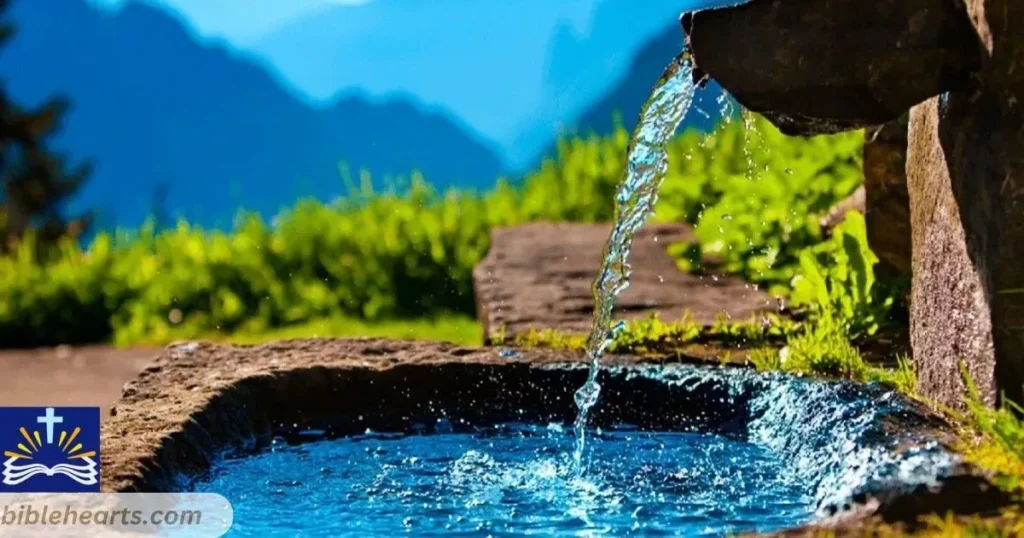
Real-Life Example:
A gardener who struggled with fig trees producing only leaves experienced a breakthrough in fruit production after following guidance inspired by Luke 13:6-9. Their improved yields symbolized spiritual growth and patience.
5. Gardens as Metaphors for Spiritual Growth
Verses:
- Song of Solomon 4:12 – “You are a garden locked up, my sister, my bride; you are a spring enclosed, a sealed fountain.”
- 1 Corinthians 3:6 – “I planted the seed, Apollos watered it, but God has been making it grow.”
- Ephesians 2:10 – “For we are God’s handiwork, created in Christ Jesus to do good works, which God prepared in advance for us to do.”
- Philippians 1:6 – “Being confident of this, that he who began a good work in you will carry it on to completion until the day of Christ Jesus.”

- Colossians 2:6-7 – “So then, just as you received Christ Jesus as Lord, continue to live your lives in him, rooted and built up in him, strengthened in the faith as you were taught, and overflowing with thankfulness.”
- 2 Peter 1:8 – “For if you possess these qualities in increasing measure, they will keep you from being ineffective and unproductive in your knowledge of our Lord Jesus Christ.”
Real-Life Example:
A person struggling with spiritual growth used a gardening analogy to describe their journey. By cultivating patience and persistence, they saw significant improvement in their faith life, reflecting the principles in 1 Corinthians 3:6 and Philippians 1:6.
6. The Role of Cultivation: Care and Nurturing
Verses:
- Proverbs 24:30-31 – “I went past the field of a sluggard, past the vineyard of someone who has no sense; thorns had come up everywhere, the ground was covered with weeds, and the stone wall was in ruins.”
- Ecclesiastes 5:9 – “The increase from the land is taken by all; the king himself profits from the fields.”
- Matthew 13:3-8 – “Then he told them many things in parables, saying: ‘A farmer went out to sow his seed. As he was scattering the seed, some fell along the path, and the birds came and ate it up. Some fell on rocky places, where it did not have much soil. It sprang up quickly, because the soil was shallow. But when the sun came up, the plants were scorched, and they withered because they had no root. Other seed fell among thorns, which grew up and choked the plants. Still other seed fell on good soil, where it produced a crop—a hundred, sixty or thirty times what was sown.’”
- 2 Timothy 2:6 – “The hardworking farmer should be the first to receive a share of the crops.”
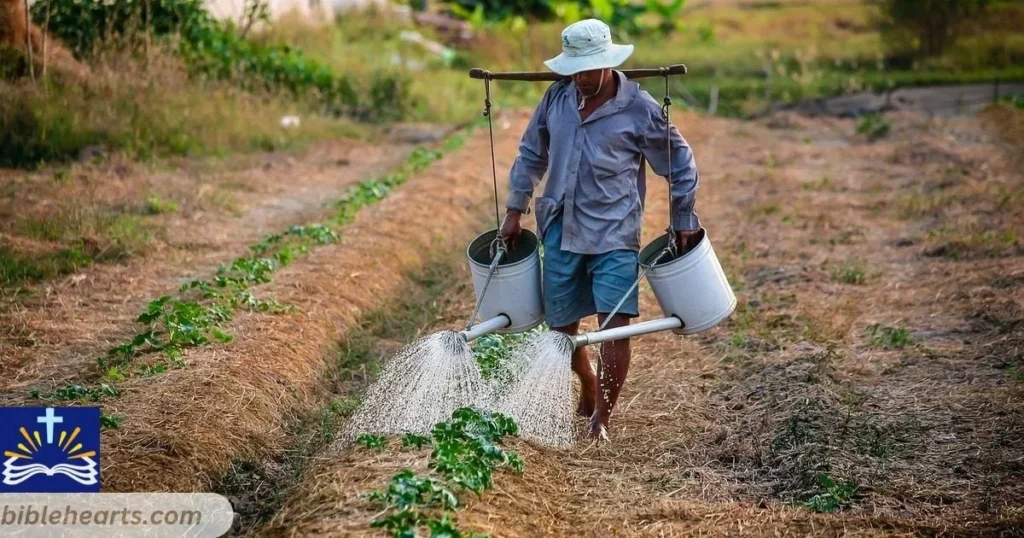
- John 4:35 – “‘Don’t you have a saying, ‘It’s still four months until harvest’? I tell you, open your eyes and look at the fields! They are ripe for harvest.’”
- 1 Corinthians 9:10 – “Surely he says this for us, doesn’t he? Yes, this was written for us, because whoever plows and threshes should be able to do so in the hope of sharing in the harvest.”
Real-Life Example:
A local farmer who applied Biblical principles of diligent cultivation and care saw a remarkable increase in crop yields, demonstrating the value of commitment and hard work as described in Proverbs 24:30-31.
7. The Garden as a Place of Prayer and Reflection
Verses:
- Matthew 26:36 – “Then Jesus went with his disciples to a place called Gethsemane, and he said to them, ‘Sit here while I go over there and pray.’”
- Mark 1:35 – “Very early in the morning, while it was still dark, Jesus got up, left the house and went off to a solitary place, where he prayed.”
- Luke 22:41 – “He withdrew about a stone’s throw beyond them, knelt down and prayed.”
- John 18:1 – “When he had finished praying, Jesus left with his disciples and crossed the Kidron Valley. On the other side there was a garden, and he and his disciples went into it.”

- Psalm 27:4 – “One thing I ask from the Lord, this only do I seek: that I may dwell in the house of the Lord all the days of my life, to gaze on the beauty of the Lord and to seek him in his temple.”
- Song of Solomon 6:2 – “My beloved has gone down to his garden, to the beds of spices, to browse in the gardens and to gather lilies.”
Real-Life Example:
A person found solace and clarity in their spiritual journey by regularly visiting a local park for quiet reflection and prayer. This practice helped them connect more deeply with their faith, inspired by the examples of Jesus in Gethsemane and other gardens.
How can we apply the lessons from Biblical gardens to our spiritual lives today?
Explanation and Answer: Applying lessons from Biblical gardens involves embracing the symbolism of growth, care, and divine provision. We can cultivate our spiritual lives by nurturing our faith, seeking divine guidance, and being patient with our own growth.
The principles of diligent care and reflection illustrated in these gardens encourage us to invest in our spiritual well-being and bear fruit in our lives (John 15:1, Psalm 52:8).
Key Insight
What is the significance of the Garden of Eden in the Bible?
The Garden of Eden symbolizes paradise, innocence, and the ideal state of human existence before the fall. It represents God’s perfect creation and the original state of harmony and abundance (Genesis 2:8-9).
How does the Bible use vineyards as a metaphor?
Vineyards in the Bible symbolize growth, fruitfulness, and God’s care for His people. They are used in parables to illustrate spiritual principles about productivity and divine nurturing (John 15:1, Isaiah 5:1-2).
What do olive trees represent in Biblical texts?
Olive trees symbolize peace, divine provision, and spiritual health. They are often associated with God’s blessings and the enduring nature of His promises (Psalm 52:8, Romans 11:17).
How can the lessons from Biblical gardens apply to modern life?
The lessons from Biblical gardens teach us about growth, diligence, and reflection. Applying these principles involves nurturing our spiritual lives, being patient in our growth, and actively seeking God’s guidance (Philippians 1:6, Colossians 2:6-7).
Why are gardens used as places of prayer and reflection in the Bible?
Gardens are depicted as tranquil and private spaces for prayer and connection with God. They symbolize a place of retreat and spiritual communion, reflecting the importance of solitude and contemplation in our faith (Matthew 26:36, Mark 1:35).
Conclusion
Gardens in the Bible are more than just physical locations—they are rich symbols of spiritual truths and lessons. From the lush beauty of Eden to the lessons of growth and care in vineyards, these Biblical gardens offer profound insights into our relationship with God and our spiritual journey.
By reflecting on these verses and applying their lessons, we can cultivate a deeper and more fruitful faith, embracing the divine care and growth illustrated in these sacred spaces.

Hi! I’m Jane Austen, a classic novelist known for my keen observations on society and relationships, bringing timeless tales to life.
